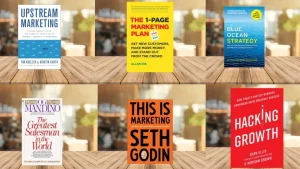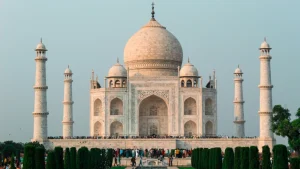In the often complex and non-transparent world of political financing, the so-called “dark money” has become a hot-button topic, firing up intense debate over the integrity of democracy in the United States. One name invoked time and again in that discussion is the organization Arabella Advisors, fiscal sponsor to scores and scores of progressive causes. As told in the book Arabella: The Dark Money Network of Leftist Billionaires Secretly Transforming America, the impact of Arabella and similar entities on American politics has been profound-highly influential, sometimes even determining elections and setting policy without accountability. The article below takes a closer look at some of the inner details of the operations of Arabella, what drives its funding networks, and what all this means for the future of American democracy.
Defining Dark Money
Before drilling into the specifics of Arabella, a definition of dark money is in order. For the purposes of political finance, dark money is money raised for the express purpose of influencing elections and not disclosed to the public. Examples include 501(c)(4) and 501(c)(6) groups, which can spend on politics without disclosing their donors. In that case, the element of transparency gets thrown out of the window, and undue influence and secrecy of the democratic process become the foremost concerns. It is based on the “Center for Responsive Politics, which finds that dark money spending during the 2020 election cycle reached record levels and further blurred the lines between voter influence and financial power.
The Structure of Arabella
Since being founded in 2005, Arabella Advisors has planted itself at the forefront of spending dark money in the world of U.S. politics. The network serves as an umbrella for a suite of nonprofits, such as the Sixteen Thirty Fund, described by many as a “dark money” juggernaut that supports progressive causes. While that may be legal, the model Arabella uses allows rich donors to pour tons of money into issues without disclosing their identity and eventually builds an influence pipeline for elections and policy decisions.
In Arabella, author and investigative journalist Scott Walter shows how Arabella cloaks its operations-even philanthropy-for billionaires who want to be nameless while at the same time touting values that place them at odds with big dollars on everything from health care to global warming. In one example, the Sixteen Thirty Fund has facilitated major funding for issues ranging from climate change advocacy to health care reforms by leveraging donations from elite actors.

Funding Sources and Impact of Arabella
The financial power for Arabella lies in an extended network system of wealthy donors, who are often referred to as “leftist billionaires.” Recent reports underpin the fact that affiliated organizations of Arabella raised more than $1.6 billion from 2016 to 2020 alone-something even higher than many traditional political action committees-as depicted in the report by OpenSecrets 2021. These funds have been strategically used in influencing elections, advocative campaigns, and policy discourses.
Take, for instance, the 2020 election cycle. Arabella played a huge role by pushing voter turnout initiatives and campaign ads focusing on key races. This portends pretty well into the larger strategy of the Democratic Party, whereby the party is increasingly leveraging nonprofit groups to navigate an electoral landscape largely characterized by corporate money.
Who is the Arabella book suitable for?
The book Arabella: The Dark Money Network of Leftist Billionaires Secretly Transforming America is suitable for a variety of readers, including:
- Students of Political Science: Government, political systems, campaign finance students will learn how dark money enters the equation and the consequences for American democracy.
- Activists and Advocates: Those involved in social justice, environmental causes, or every other form of advocacy may appreciate learning about funders and tactics that power progressive movements.
- Policymakers and Legislators: Government officials and policy makers alike shall acquire a deeper understanding of how dark money works in politics, thereby helping consider various reforms and regulations.
- Journalists and Researchers: Media professionals and academic researchers that report on and study politics and finance will be critically supported in their ongoing coverage and research of campaign finance and money’s influence over politics.
- General Readers Interested in Politics: Anyone interested in how wealth, politics, and the making of policy interact will find the book both engaging and edifying; thus, it appeals to the widest readership.
On the whole, the book is an essential aid for anyone seeking to understand the intricacies of political finance and the role of wealthy donors in setting U.S. policy and elections.
Conclusion
Understanding the Arabella Advisors network and the money they are using opens a new chapter in American political finance. The organization has been influential in advancing the needs of the progressive movement and made large donations for the expansion of the movement, but its activities within the shadows raise crucial concerns about democracy’s core values of openness and responsibility. The issue of dark money is definitely not resolved; it goes to the root of the matter, who runs the policy and how it should be run.
As the nature of such organizations as Arabella starts to sink in the minds of Americans, the need for reform boosts up in order to preserve the sanctity of the electoral system. The issue of dark money, focused by Arabella, can be expected to continue as a central theme for policymakers, activists and voters.











